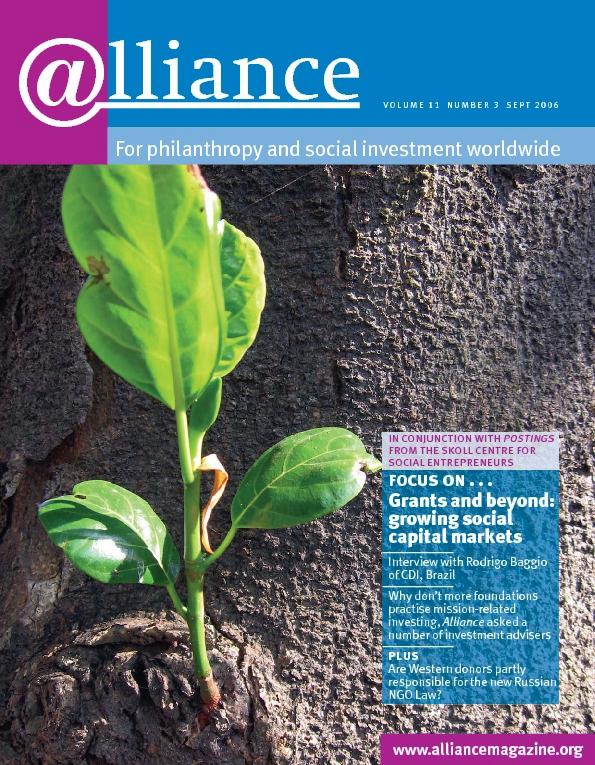The recently completed CIVICUS Civil Society Index (CSI) project in Turkey is the country’s most comprehensive study on civil society undertaken to date and the first internationally comparative one. It is also timely and significant for the assessment of civil society in a country of 70 million working towards European Union membership and commonly referred to as a bridge between east and west.
TUSEV (Third Sector Foundation of Turkey) coordinated the study, which included a number of data-gathering activities in respect of CSI’s four dimensions (structure, environment, values and impact). These included surveys and consultations with over 200 stakeholders, a media review, policy impact studies, and a detailed literature review dating back to 1999.
The overall picture that emerges is that civil society in Turkey is a burgeoning movement going through a period of transition. The ‘CSI Diamond’ (left) presents a general visualization of research outcomes, which the country report (due out in September) describes in greater detail. The scale is from 0 (weak) to 3 (strong).
Turkish civil society is, however, limited in depth and breadth. There are only 108 associations and 4.5 private foundations (the two main legal forms of CSO) per 100,000 citizens and participation in these organizations is also low: 18 per cent make donations, totalling only about 0.1 per cent of GDP (or US$53 per family per year); 7.8 per cent are members of associations, and 1.5 per cent are volunteers.
Since 2001, Turkey’s democratic reform trajectory has ostensibly created a more enabling environment for civil society, and thawed state-civil society relations. However, the CSI study indicates that in practice CSOs, especially those working on rights-based issues, remain hindered by cumbersome administrative procedures and government interference.
But the study also portrays a vibrant array of CSO initiatives in a rapidly developing, enterprising sector with great potential. CSOs display a great eagerness for more involvement in the policy-making process. They are also self-critical, and aware of the need to promote greater transparency and accountability; and also of the need to promote public awareness and citizen involvement.
As a next step, TUSEV will disseminate results and convene stakeholders nationally and internationally, in order to implement the findings of the research and generate the momentum for civil society strengthening initiatives in Turkey.
For more information
For the key findings of the study, see http://www.civicus.org or http://www.step.org.tr
For more about TUSEV, see http://www.tusev.org.tr



Comments (0)